Forensic medicine
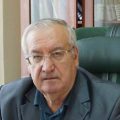
In the summer of 1920, the Kuban Regional Department of Public Education announced the creation of the Kuban University, which consisted of medical, natural and socio-historical faculties.424 people became students of the Faculty of Medicine.The Department of Forensic Medicine was one of the first to be organized, since in 1920 students were admitted simultaneously to the first and final courses – 29 mediocre doctors who had not completed their education.
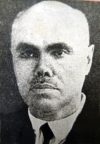
Its first director was Professor Nikolai Fedotovich Melnikov-Razvedenkov.Awarded the Zagorsky Prize for his method of preserving the natural coloring of pathological specimens.Known in medical circles as an active participant in the embalming of the body of V.I.Lenin.Practical classes in medical institutions of the city were conducted by the head of the department and assistant A.M.Davidovich.The department did not have separate premises and equipment until 1925.
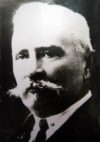
In 1925-1930, the department was headed by Professor Georgy Stepanovich Kulesha, who at the same time headed the department of pathological anatomy.His doctor of medicine dissertation is devoted to the pathological and bacteriological study of pneumonia due to measles.By the end of 1925, the department was allocated a room, the collection of sectional material and equipment for educational and scientific work began, and the first museum specimens were created.
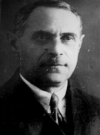
Since 1930, the duties of the head of the department were performed by senior assistant Alexander Mikhailovich Davidovich.In 1935, without defending a dissertation based on a body of work, he was approved for the academic degree of Candidate of Medical Sciences and the rank of Associate Professor.Since 1937, he headed the forensic medical service of the region.The pedagogical and scientific activities of the department were facilitated by the deployment at its base in 1937 of a regional forensic laboratory with biological and forensic chemical departments.During this period of time, assistants V.K. worked at the department.Chernaya (since 1943 - head of the regional forensic laboratory), K.M.Melnikova (since 1947 - city forensic expert, then - head of the regional bureau of forensic medical examination).
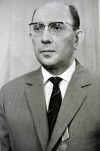
In 1955, Candidate of Medical Sciences Vyacheslav Leonidovich Svyatoschik was appointed head of the department, and in 1960 he was awarded the title of associate professor.V.L.The saint constantly combined teaching activities with extensive expert work.According to the resolutions of the KGB of the region, he repeatedly took part in the work of forensic expert commissions on criminal cases brought against former employees of the secret field police, police officers of the village of Tamanskaya, “Caucasian Company”, etc.
The scientific activities of the department were devoted to the study of post-mortem processes, the age of burial based on bone remains, the shooting distance, and the identification of sharp weapons.The educational process at the department was carried out with the participation of K.M.Melnikova, A.F.Rubezhansky (in 1966 he defended his doctoral dissertation on the topic: “Determination from bone remains of the age of burial of a corpse”; in the same year he was elected to the post of head of the department of forensic medicine at the Dnepropetrovsk Medical Institute); V.N. Gornaev, L.I. Golovinskaya (now Lomakina, associate professor of the department) took part in teaching students. In 1969–71, the duties of the head of the department were performed by Alexander Aleksandrovich Mayer, who was elected by competition to the position of assistant of the department in 1969.
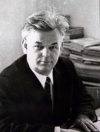
In 1971, Doctor of Medical Sciences Nikolai Ivanovich Repetun was elected head of the department.The department's facilities have been improved: 3 classrooms, histochemical and photographic laboratories have been deployed.Methodological developments for classes were created, equipment was purchased, tables, slides, models, and museum preparations were made.
The examination of the corpses was carried out in the morgue of the medical examiner’s office.Professor N.I.Repetun became the founder of the toxicological direction, which is being developed by the department to this day.Under his leadership, 5 candidate dissertations were defended for the first time.Since 1973, training began through graduate school, clinical residency and internship.During this period of time, Mayer A.A., Golovinskaya L.I., Porodenko V.A., Perova T.P., Zhuk N.V., Reznikov A.Yu. worked as assistants.One of the first interns – N.P.Varshavet, a graduate of the institute in 1974, subsequently studied in correspondence graduate school at the Department of Forensic Medicine of the KMI, completed and defended his thesis in 1986, and from 1993 to 2013 headed the regional bureau of forensic medicine.
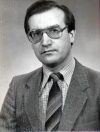
In 1986, KMI graduate Associate Professor Valery Anatolyevich Porodenko was elected to the position of head of the department.With the move in 1987 to the new building of the morphological building, the department significantly improved its material base: 7 teaching rooms, a section hall with equipped rooms for the delivery of corpses, their short-term and long-term storage, 2 scientific and practical laboratories - medical-forensic and histochemical.This allows the team to organize at a high level pedagogical, scientific and clinical expert activities for the production of all main types of forensic medical examinations: corpses, living persons, as well as materials from criminal and civil cases.The expanded laboratories also provide an opportunity to examine a number of material evidence of biological origin, demonstrating their capabilities during the educational process.
In addition to forensic medicine (from 1920 to the present), the department provided training in the courses of jurisprudence (from 1986 to 2014), bioethics (from 2001 to 2012), “Legal foundations of the activity of a doctor” – PDV (from 2012), “Fundamentals of the professional activity of a doctor” – OPDV (from 2012) “Administrative and legalregulation of medical activities” – APR (since 2015).
Since 2023, the department has begun teaching forensic medicine for English-speaking students in English;Courses of lectures and workbooks for practical classes have been prepared in English and Russian.Since 2024, the department has been involved in the training of specialists with secondary specialized education, the following programs have been developed: “Legal support for professional activities”, “Post-mortem care for the body of the deceased” in the specialty 31.02.01 General Medicine (Qualification of a mid-level specialist “paramedic”);“Legal support of professional activities” in specialty 34.02.01 Nursing (qualification: nurse/nurse);“Legal support for professional activities” of secondary vocational education in the specialty 02/31/06 Preventive dentistry, industrial practice – PP;06.01.“Performing laboratory and instrumental research during forensic medical examinations (research)” in the specialty 02/31/03 Laboratory work.
Today, the department staff is staffed by two doctors of science, professor V.A.Porodenko and associate professor E.N.Travenko, Candidate of Medical Sciences, Associate Professor E.I.Bystrova, senior teacher G.R.Tulendinov, assistants – A.V.Ilina, S.A.Anuprienko, D.A.Laptev (candidate of legal sciences), V.O.Vronsky, R.V.Morozova, F.M.Hun.
The teaching staff of the department is constantly improving educational and methodological complexes in all disciplines, as well as postgraduate training – residency and postgraduate studies;annually revises and supplements with new materials the content and multimedia support of lectures.Over the past few years, videos have been regularly added to the lecture material to improve the clarity of the presentation of materials on the nature and mechanism of damage formation under various types of external influences.In the educational process, 3 videos created by employees of the department are widely used for the educational process: “Procedural and organizational foundations of forensic medical examination in Russia”, “Techniques for performing a forensic medical examination of a corpse”, “Examination of physical evidence”, as well as 6 videos on various types of forensic medical examination.In the discipline “Forensic Medicine” there is a video library for students, residents and forensic experts, which contains videos on the inspection of the crime scene, examination of the corpse, examination of the exhumed corpse, plane crash, examination in cases of sexual crimes, conducting investigative and expert experiments, interrogation of suspects who were filmed during examinations and participation in the initial investigative and investigative actions of the department’s teachers and experts from the regional forensic bureau.
Professor V.A.Porodenko made a video recording of a series of lectures on forensic medicine, which is made available to students in the public domain, and the lecture presentations were edited in a new format.
For each of the taught disciplines in the classroom, students receive an individual assignment – sets of situational tasks developed by teachers, created models of inspection of accident sites, macroscopic specimens with damage from blunt, sharp, firearms, vehicles, etc. To practice practical skills, the University’s Multidisciplinary Accreditation and Simulation Center is used, work in sectional halls of the department and the SME bureau.To control knowledge, input and current control of knowledge are used (10-15 tests each).Students of all faculties also have access to an electronic form of guidelines for extracurricular preparation for classes.
When conducting practical training in forensic medical examination of living persons, the study of medical records of inpatients or outpatients is widely used, mainly in accordance with decisions on the initiation of cases of administrative offenses in road accidents.At the same time, students analyze not only the nature of the injuries to determine the severity of the harm caused to the health of the victims, but also common defects in the maintenance of medical records.
Due to the lack of textbooks and manuals on the subjects of OPDV and APR, a number of fairly voluminous educational and methodological materials have been prepared and published.Educational assignments on forensic medicine have been published for independent extracurricular work of students of medical, pediatric, medical-preventive and dental faculties.
Tasks and sample answers on problems of medical law on the work of a doctor in primary health care, which are included in the set of tasks for the final state certification of students, are regularly edited.The adoption of state exams has shown the feasibility of their use, given the growing importance of the legal literacy of doctors in the light of increasing demands on medical activities on the part of patients, the public, law enforcement agencies, and the media.
The results of improving teaching are annually reported and published in the materials of regional, interuniversity, Russian and international educational and scientific-methodological conferences.
Teachers constantly carry out educational activities both during the educational process and outside the classroom.
The scientific work of the department has risen to a qualitatively new level in connection with the completed original developments in quantitative computer analysis of microscopic images.In 1997 V.A.Porodenko defended his doctoral dissertation on the problems of diagnosing alcohol intoxication.Under his leadership, 6 candidate dissertations were prepared and defended – E.N.Travenko, V.V.Chernobay, V.E.Budnik, E.I.Bystrovoy, V.T.Korkhmazov, I.V.Ershova;Currently, 4 candidate dissertations (by A.V. Ilyina, G.R. Tulendinov, S.A. Anuprienko, A.S. Penkin) are being completed;consultant on protected E.N.Travenko doctoral dissertation.Based on the results of scientific research, 4 patents for inventions and a certificate of state registration of a computer program were received.In collaboration with V.E.Budnik published the monograph “Criteria for the diagnosis of mild traumatic brain injury”, which was awarded a diploma as a laureate of the regional competition for the best scientific and creative work among teachers of universities in the Krasnodar region.For the anniversary dates, the department prepared and published collections of scientific research works.V.A.Porodenko is a co-author of the national guidelines “Forensic Medicine and Forensic Medical Examination” (2014 and 2018).
The scientific and teaching staff of the department in 2019-2023 carried out the complex topic “Clinical, diagnostic and morphological features of forms of alcoholic liver disease against the background of ethanol intoxication.”In correspondence postgraduate study on a paid basis, 2 forensic experts of the State Budgetary Institution “Bureau of Forensic Medical Examinations” of the Ministry of Health of the Republic of Kazakhstan are trained – A.S.Penkin (scientific supervisor – V.A. Porodenko), M.G.Borisenko (Melikyan) (scientific supervisor – E.N. Travenko).
The department staff prepared and submitted applications for grants:Grant from the KNF “Clinical, diagnostic and morphological criteria of various forms of alcoholic liver disease against the background of ethanol intoxication” (2018-2020).Grant of the KNF “Forensic medical assessment of infant and child death” (2021-2024).RSF grant Competition 2024 “Conducting fundamental scientific research and exploratory scientific research by individual scientific groups” on the topic: “KADAVER-LAB dissection courses in the system of state university and postgraduate medical education (comprehensive program.”Internal grant 2024 “Scooters and associated injuries: clinical and morphological characteristics, diagnosis, prevention.”Students take an active part in research work.Meetings of the SSS circle are held regularly.The results of the research work are discussed at the independent section “Forensic Medicine and Medical Law” of the annual intra-university scientific student conference, where reports from 14-18 students are heard.Every year, 8-12 students publish the results of their scientific and practical research in the materials of regional and regional, university final scientific student conferences;5 articles co-authored with teachers of the department were published in Scopus and Higher Attestation Commission magazines.In 2017, 2018 and 2019, teams of students from our university with the head of the SSS circle, assistant S.A.Anuprienko took part in the Olympiad in Forensic Medicine held by Sechenov Medical University, winning diplomas in individual categories;in 2019 our team took second place at the olympiad.In 2020 and 2021, teams of students and residents took part in international olympiads (Samarkand) three times, where they took 1st, 2nd and 3rd places and were awarded as winners in various nominations.
Innovative methods are being introduced into research work.Meetings of the Council of People’s Commissars are held in the conference hall of the Department of Forensic Medicine in a combined format – some students are present in person, reports with prepared presentations are broadcast live using the capabilities of the Telegram platform.The university website contains information about SNK, presentations of reports, articles, photos of conferences.“In Contact” a community has been created by the Council of People’s Commissars of the Department of Forensic Medicine, where meetings of the Council of People’s Commissars are announced, presentations of reports are posted, and relevant and useful information on issues of forensic medicine is posted.Teachers of the Department of Forensic Medicine, graduates of the university and the department – current forensic experts of the State Budgetary Institution “Bureau of Forensic Medical Examinations” regularly participate in the meetings of the Council of People’s Commissars, who share practical experience and answer questions from students.Contacts have been established with the Council of People’s Commissars of a number of medical universities in our country, and joint events are planned.Thus, on 12/09/2024, teachers and students of the SNK department D. Builenkov, A. Samoilova, S. Litonova (medical faculty), A. Zagumennikova and D. Lipatova (pedagogical faculty) took part in the round table “Implementation of the constitutional right to health care in Russia,” organized by the Faculty of Law of KubSU, where they made presentations;teachers and students were awarded letters of gratitude.
The department is a school for training and retraining personnel for the forensic medical service of the region and the south of Russia through SSS – residency – certification cycles of improvement and – professional retraining of specialists.Over the course of 5 years, 28 graduates of medical universities in the Russian Federation completed residency training.Materials for distance learning have been developed, which were tested during the certification cycle for 32 experts of the Crimean Bureau of Medical Examiners in 2015;they are successfully used in the course of advanced training and professional retraining of specialists.A lot of work has been done to enter the CME system: in 2017, for the first time, a conference was prepared and held for forensic doctors of the region and the South of Russia, 200 certificates were issued for 6 credit units;Subsequently, such conferences were held by the department 1-2 times a year.Materials have been prepared and approved for six 36-hour modules in the CME system, for which advanced training cycles are conducted.All teachers of the department have joined the Association of Forensic Medical Experts of Russia and regularly “earn” points (credits) by participating in online conferences.
The department was awarded a Certificate of Honor from the All-Russian Society of Forensic Physicians LLC, a Diploma and medal of the international competition “Quality and Safety Guarantee”, and a Diploma from the Russian Academy of Economics “Golden Department of Russia”.

